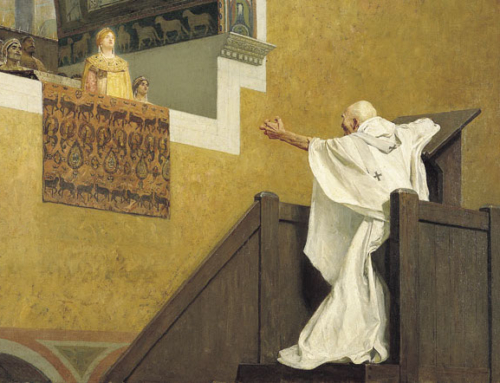Light veils monsters to weak eyes. This fact is familiar if you’ve ever been spotted in the dark. A blinding flash fills your doe eyes, abruptly ending your midnight escapades. Frozen, you hold your breath, waiting to see who is the concealed sentry. Depending on your activity and location, they could be beneficent or malevolent.
The anglerfish is a hideous creature that cloaks itself in darkness and light. In the depths of the ocean, this fish lurks in the darkness holding out a lantern. From the top of its head, a long stem stretches out with a small light at its point, the esca. An unsuspecting fish sees dinner, but it’s likely to be swallowed whole. Hidden underneath that light are the hungry jaws of the angler. The light hides a horrid mouth brandishing knives.
This creature from the deep resembles our adversary who fell from heaven like lightning. Lucifer, the lightbearer, chose darkness over the true Light of Christ. Now as the prince of this world, he hides in darkness and lies. As our tempter, he falsely presents goods to us, trying to lure us into his mouth. Like the angler, he offers food—an enlightening apple—only wishing to swallow us into the darkness. St. Peter wrote well of our situation, “Be sober and vigilant. Your opponent the devil is prowling around like a roaring lion looking for someone to devour.”
His prowling resembles the lurking of the anglerfish, putting before our eyes something desirous. If we find ourselves walking in darkness, his offering seems good. Without the night of the deep, the anglerfish couldn’t hide itself behind its luminous lure. Likewise, if Satan couldn’t hide himself in the darkness of lies, his offering would seem enlightening—”you will not die … you will be like God.” The light of knowledge was offered as bait to our first parents, and subsequently they and we are swallowed up into death. Thankfully, Jesus’s salvific act rescues us from the mouth of the grave, but the devil continues to lurk and seek out our destruction.
One prevalent temptation today hides itself in the light of experiential knowledge. False teaching across college campuses suggests that personal subjective knowledge is the path toward wisdom. Objective knowledge is dismissed as draconian, and faith-based knowledge is scoffed at as palliative and anti-intellectual. Instead of traditional wisdom, there is a sentiment that students should pursue knowledge through undisciplined social experimentation. Nietzsche advocates for learning on “new paths … with all the uncertainty of one who must find his own way.” Walking in this way, one stumbles through the darkness toward anything that looks good. It’s akin to swimming in the abyss toward the famished monster.
A folksy plaque that hung in my childhood home read, “Learn from other’s mistakes, you don’t have enough time to learn from your own.” In a sense: listen to others, receive instruction, you can’t learn it all by yourself. This homey decor exhorted one to pay attention, much like the Byzantine deacon during the liturgy, “Wisdom! Let us be attentive.” Scripture is wrought with people who have made mistakes, from Adam to David to Peter and Paul. Beyond showing the consequences of sin, their mishaps reveal to us that our own desires, left unguided, can lead us into danger. Scripture can be a guide. “Thy word is a lamp to my feet and a light to my path.”
The reader who approaches Scripture in faith begins to see that Someone is holding out a lamp before them. Life is not diminished by subjugating personal experience to instruction. Rather, God’s instruction gives one eyes to see, eyes which “grow accustomed to peering into the depths” (Pope Francis, Lumen fidei 30). Christ gives us new eyes, strong ones which can see the monsters hiding in the dim light of their fallen existence. Christ, instructing us in the word, renders us sober and vigilant. He does not hide behind light to devour us but illuminates and feeds us. Though we walk in the shadows, His light shines in the darkness.
✠






